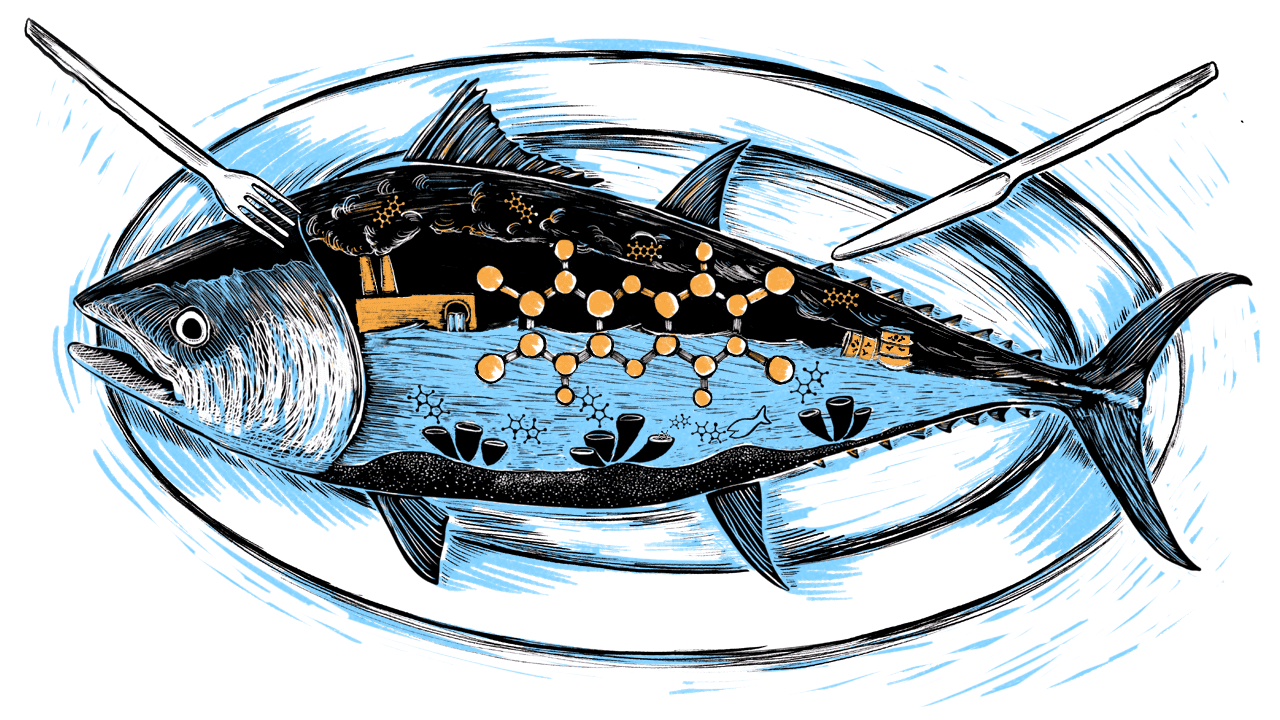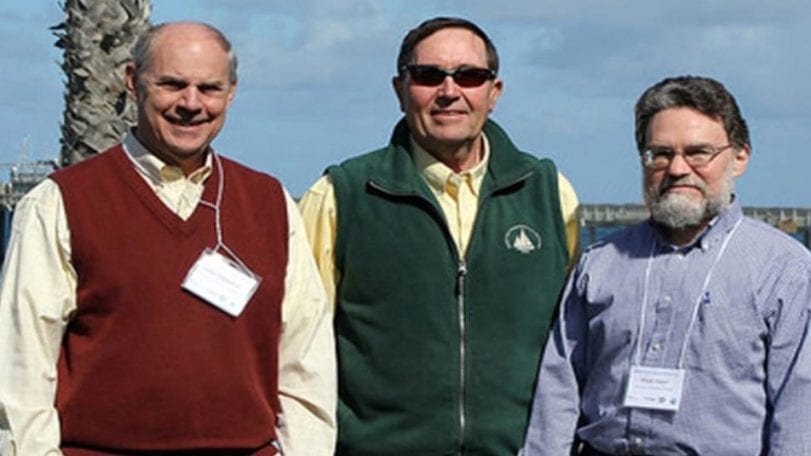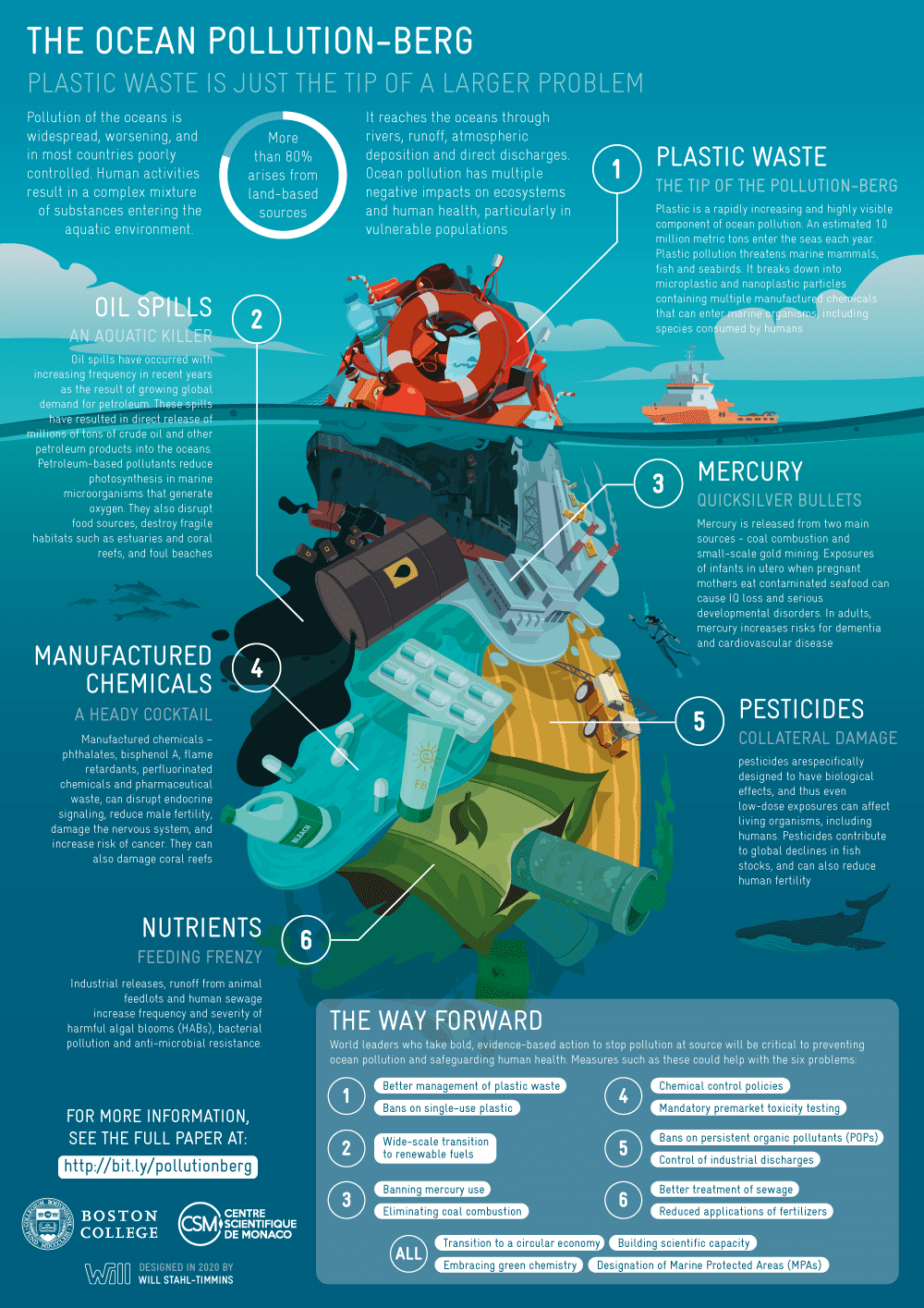A checkup for the oceans reveals threats to human health
A checkup for the oceans reveals threats to human health
By Elise Hugus | December 7, 2020

A checkup for the oceans reveals threats to human health
By Elise Hugus | December 7, 2020
(Illustration by Natalie Renier, © Woods Hole Oceanographic Institution)
The health of the world’s ocean is in serious decline—and human health is suffering as a result.
That’s according to a comprehensive report investigating the societal impacts of marine pollution, published in the December 3 Annals of Global Health. The report, co-authored by John Stegeman, WHOI biologist and director of the Woods Hole Center for Oceans and Human Health, takes a deep dive into the impacts of climate change, plastic dumping, nutrient runoff, oil spills, and other pollutants on human well-being.
“This report is part of a global effort to address questions related to oceans and human health,” says Stegeman. “Concern is beginning to bubble up in a way that resembles a pot on the stove. It’s reaching the boiling point where action will follow where it’s so clearly needed.”
The study, led by the Centre Scientifique de Monaco and Boston College, found that global marine pollution is widespread and getting worse, posing serious danger to billions of people. Yet people in lower-income nations bear the majority of the burden, despite their relatively low contribution to the problem. To address this, the report concludes with policy actions that can be implemented on community, national, and global levels to protect the oceans—and future generations.
Several WHOI scientists contributed to the report, including toxicologist Mark Hahn, who wrote about persistent organic pollutants, biologist Don Anderson who covered harmful algal blooms, and marine chemist Chris Reddy, who focused on a section about oil spills. Altogether, over 40 researchers from institutions across the United States, Europe and Africa were involved in the study.
Stegeman said the paper will have increased impact due to its broad scope and policy recommendations, which were announced last week during the first-ever Monaco International Symposium on Human Health and the Ocean in a Changing World, held virtually and in person on December 2 and 3.
“We know there are chemicals capable of causing harm and they occur in the ocean and in seafood,” Stegeman said in a virtual presentation at the symposium, citing neuro-developmental effects that researchers have called a silent “global pandemic.”
But he says there is precedent for action, including a 1979 ban on the manufacture of polychlorinated biphenyls (PCBs)—a probable carcinogen—and the cleanup of Boston Harbor, once considered the dirtiest waterway in America, in the 1990s.
“It’s a matter of political will—and public recognition of the problem—to ban the production of certain chemicals,” Stegeman says.
On the final day of the symposium, the Monaco Commission on Human Health and Ocean Pollution issued the Declaration of Monaco, a call for global action to transition from fossil fuels to renewable energy; shift to an economy based on equitable growth and sustainable production; establish a network of Marine Protected Areas to safeguard vulnerable species and habitats; prevent further mercury emissions by ending coal combustion and artisanal gold mining; ban the production of single-use plastics; more effectively manage solid waste, sewage, and runoff; and transition from toxins to “green chemistry” in manufacturing.
With further study and robust monitoring of the oceans, the report suggests, scientists and policymakers will develop more targeted strategies to reduce the impacts of pollution on human health.
“The Monaco Commission report is a clarion call for all of us to pay renewed attention to the ocean that supports life on Earth, and to follow the directions laid out by strong science and a committed group of scientists,” says Rick Murray, WHOI Deputy Director and Vice President for research, who served on the conference steering committee. “The ocean has sustained humanity throughout the course of our evolution—it’s time to return the favor and do what is necessary to prevent further, needless damage to our life planetary support system.”


